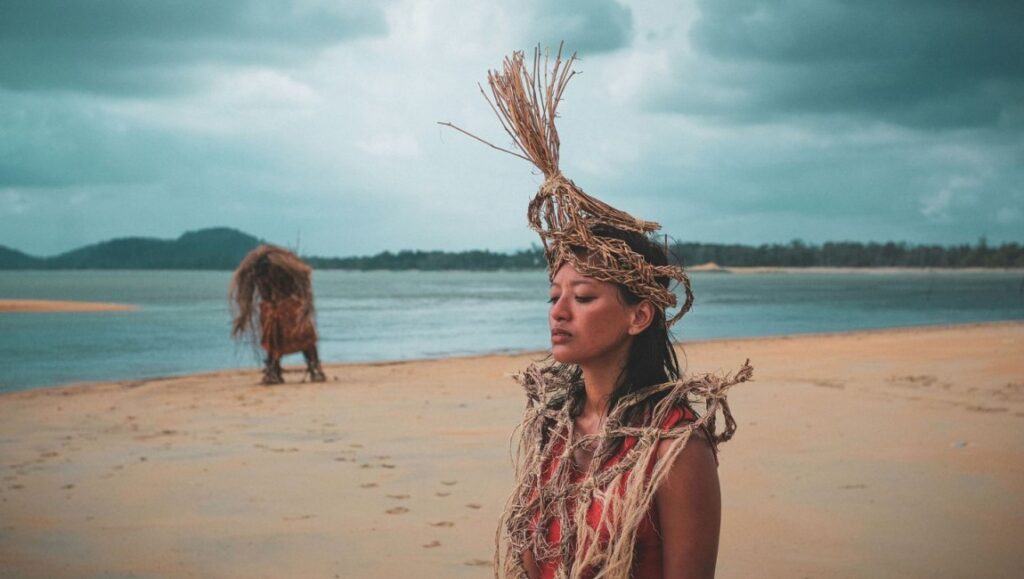The latest film from veteran Malaysian director Woo Ming Jin (Monday Morning Glory, The Tiger Factory) is an interesting cinematic specimen. A filmmaker with sensibilities that run to both Asian art film and outré horror, Woo strives to achieve a kind of hybrid object with Stone Turtle, and the results are suitably mixed. The film offers a bit of a parallel to the “elevated horror” wave that has been dominating Western fests and arthouses for the past few years, suggesting that in the age of streaming content, a filmmaker with aesthetic ambitions may feel required to dress them in the sheep’s clothing of genre.
To its credit, Stone Turtle is a continually shifting film. From its opening moments, which depict an act of shocking brutality, through its various narrative bobs and weaves, Woo’s film only makes its project absolutely clear in the final half hour, and even then certain fragments are difficult to square with the film’s apparent reality. Set on an isolated Malaysian island, said to be populated only by “savages,” Stone Turtle is fundamentally about kinship, with blood ties frequently filtered through myth and folklore. As such, Woo is able to continually revise his diegetic world, with implications of supernatural occurrences, fractured memories, and traumatized subjectivity.
Zahara (Asmara Abigail) is a young woman who is raising her dead sister’s child, Nika (Samara Kenzo). As we eventually learn, they left the mainland for a desolate life on the island, largely to protect Nika from the sorts of dangers that befell the girl’s late mother. Alas, civilization finds the pair, as Samad (Bront Palarae) suddenly appears on the shore one day. He claims to be a turtle researcher from the national science academy, but Zahara suspects right away that he is not quite what he seems. The two begin a tenuous struggle of wills, as Nika’s safety hangs in the balance.
Without giving too much away, it can be said that Woo employs a form of looped cinematic time. Even though Stone Turtle’s visual language implies an uninflected realism, events begin to repeat themselves, and Zahara becomes increasingly uncertain of her position relative to Samad, Nika, and others hovering on the periphery of her life. This includes her repeated attempts to register Nika in school, which are complicated by Zahara’s non-citizen status. She is an ethnic Acehnese, and this could mean that the home she originally fled was in Indonesia, or that she and her family were undocumented immigrants in Malaysia from the start.
As you may gather, Stone Turtle is an ambitious film. Woo strives to enfold such complex issues as statelessness, fundamentalism, femicide, and environmentalism, as well as the slippery fabric of reality itself. In truth, Stone Turtle grazes all of these concerns without delving into any of them in a fully satisfying way. It’s a bit of a battle between violence and revenge, on the one hand, and the traumas of colonialism on the other. It’s a seductive battle, even if the incommensurate elements ultimately come to a draw.
Published as part of Locarno Film Festival 2022 — Dispatch 1.


Comments are closed.